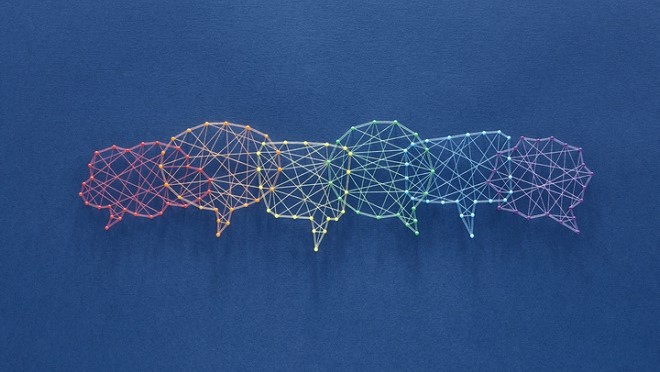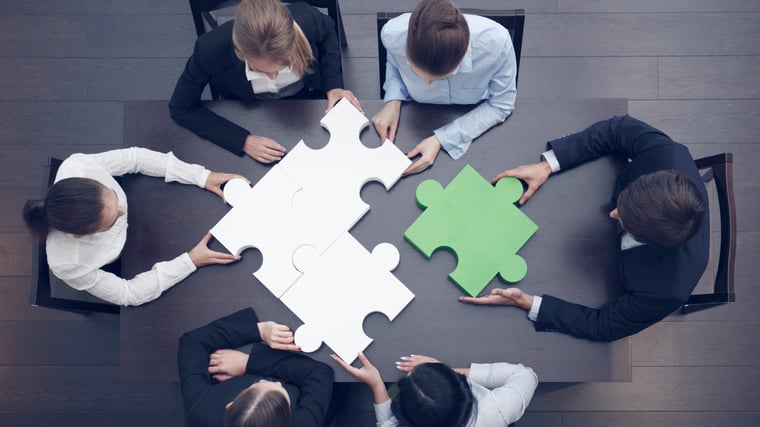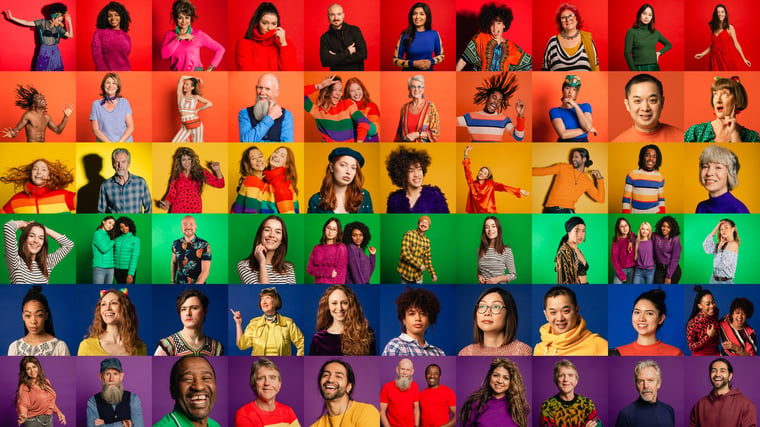What do you picture when you hear the word disability? Do you see someone in a wheelchair? Someone who cannot see or hear? What we think about disability is often influenced by society. In entertainment, for example, people with disabilities are often depicted in two very different ways: as inspirational heroes or as victims. But many disabled people prefer neither of those designations and feel that they misrepresent their everyday lives. We want to explore how this impacts people with disabilities and provide actionable steps that you can take to be a better ally to those around you.
How does misrepresentation affect people with disabilities?
Dominick Evans, filmmaker and a person with a disability, says that “Accurately depicting disabled people is the only way that we will see improvements to the treatment of disabled people. Our lives are not all positivity and sunshine. We need to see the good and the bad because people have this unrealistic view of what being disabled is like." Humans want to be accepted for who they are, no matter how they look, experience the world, or respond to situations. But, misrepresentations like these often translate to microaggressions, which only make them feel worse.
Microaggressions
Microaggressions are the everyday slights, indignities, put-downs, and insults that marginalized groups experience in their day-to-day interactions with individuals who are often unaware that they have done something offensive or demeaning. Many microaggressions are unintentional and subtle, which makes them hard to spot. But they are prevalent and can be directed at anyone, anytime.
Common Microaggressions Against People with Disabilities
Disbelief or Denial
- “You don’t look like you have a disability.”
- “Your disability must be mild; you seem so smart.”
- “Really? What is your disability?”
Minimization
- “Hey, everyone has problems.”
- “I’m OCD about keeping my desk organized.”
- “I think of you as a normal coworker.”
Helplessness/Brokenness
- “Are you sure you can finish that project? Let me help you.”
- “Wow, that’s great! I didn’t think people like you could do that!”
- “What you’ve accomplished with a disability is so inspiring."
Most of us have been insulted at some point in our lives. Maybe you have even experienced a microaggression and perhaps did not say anything for fear of making things awkward or tense. For people with disabilities, microaggressions and ableism go hand in hand and can lead to feelings of isolation, hurt, and a sense of exclusion.
Ableism
Ableism is discrimination and social prejudice against people with disabilities based on the belief that typical abilities are superior. At its heart, ableism assumes that disabled people require fixing and defines people by their disability instead of their individual characteristics. Like racism and sexism, ableism classifies entire groups of people as less than, and includes harmful stereotypes, misconceptions, and generalizations of people with disabilities.” Ableism is discrimination.
Examples of Ableism
- Scheduling a work event or meeting at an inaccessible venue
- Resting a hand or foot on a mobility device
- Using words like tragic, victim, suffering, or inspirational when talking about disability
- Asking invasive questions about their disability
- Assuming that every disability is visible
- Talking to a person with a disability like a child
Sexism, racism, ageism, classism, ableism - tackling the complex issues surrounding these terms is daunting. But real change starts with one person who thoughtfully examines their assumptions about people. Challenge yourself to pay attention to what you think and feel about disability. Watch for opportunities to be intentionally inclusive at work, in your community, and with family and friends.
Ableism and microaggressions
in the workplace
Ableism and microaggressions are alive and well at work and can make for some uncomfortable and often harmful situations on the job. Everyone has said things that make us cringe when we think about how it sounded to others.
Here is what we can do about it, according to Access Living:
- Believe people when they disclose a disability.
- Listen to people when they request accommodations.
- Never touch a person with a disability or their mobility equipment without consent.
- Don’t speak on behalf of someone with a disability unless they explicitly ask you.
- Incorporate accessibility into your event planning.
- Don’t accuse people of faking their disability.
- Don’t assume you know what someone needs.
- Keep invasive questions to yourself.
- Talk about disability with children and young people.
Want to increase your knowledge about people with disabilities? Check out Alice Wong’s edited collection Disability Visibility: First-Person Stories from the Twenty-First Century. It features everything from blog posts, manifestos, and eulogies to Congressional testimonies and shines a light on what it means to be a person with a disability. Accessibility has come a long way in our world over the past fifty years. But more changes are needed.
What you can do next
If you have got words and assumptions you want to change, start with the easiest step: Check your doubt and unconscious bias at the door and believe people. You do not need to have all the details or know anything about their disability unless they want you to. In the United States, providing accommodations for people with disabilities is required by law. The Americans with Disabilities Act (ADA) requires employers to make reasonable accommodations to allow people with disabilities to perform jobs for which they are qualified. Such as allowing service animals to come to work and providing accessible parking, alternative communication formats, and assistive technology.
We all have a responsibility to be strong advocates for those we work with – especially colleagues from marginalized groups. Do the self-work to utilize appropriate language and treat people with disabilities with the dignity and respect they deserve. Ensure your work environment is conducive for everyone and that all necessary accommodations are in place. Everyone has the right to work in organizations that are inclusive, safe, and foster a sense of belonging. Now you have the tools to ensure that you are an ally in that journey.




